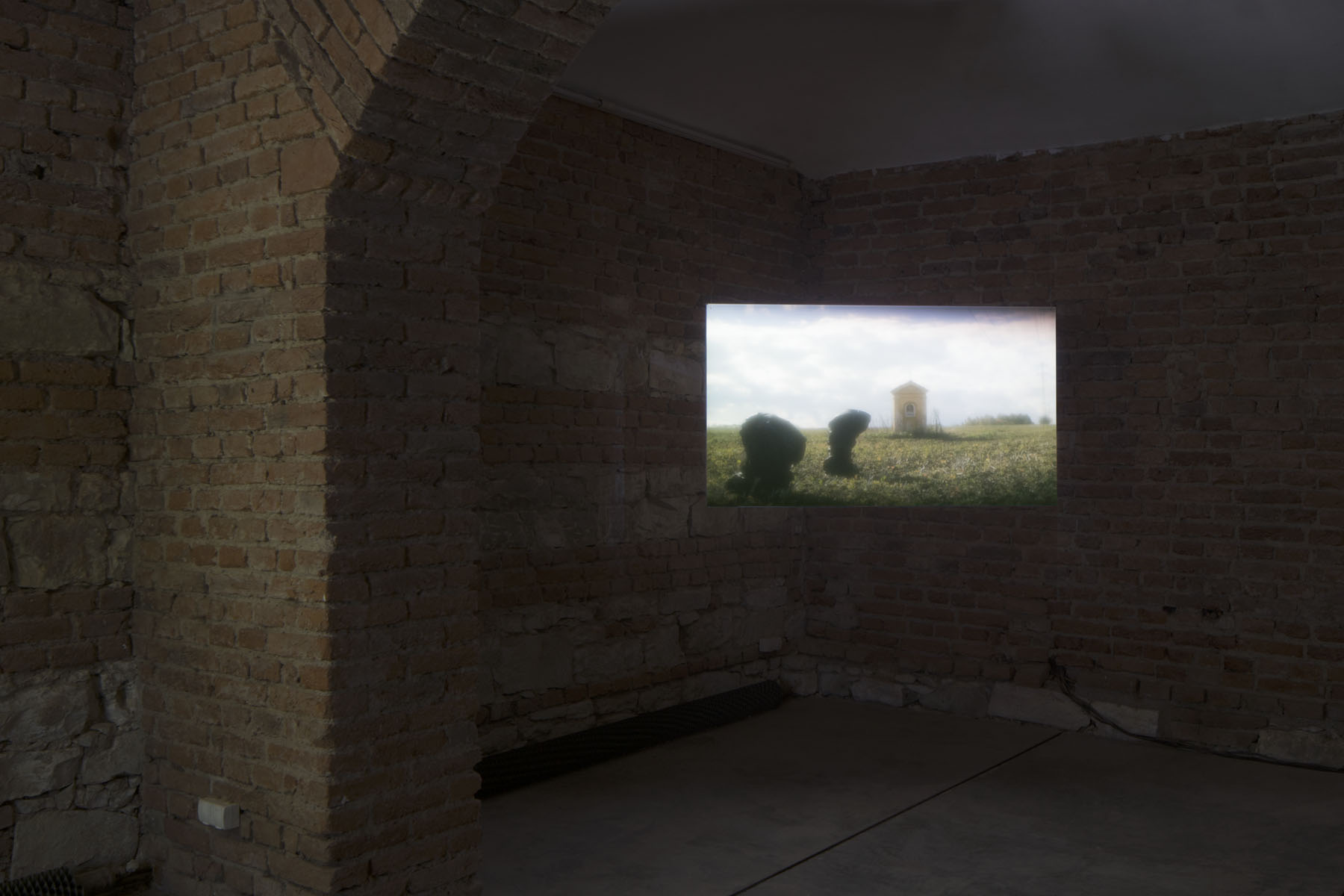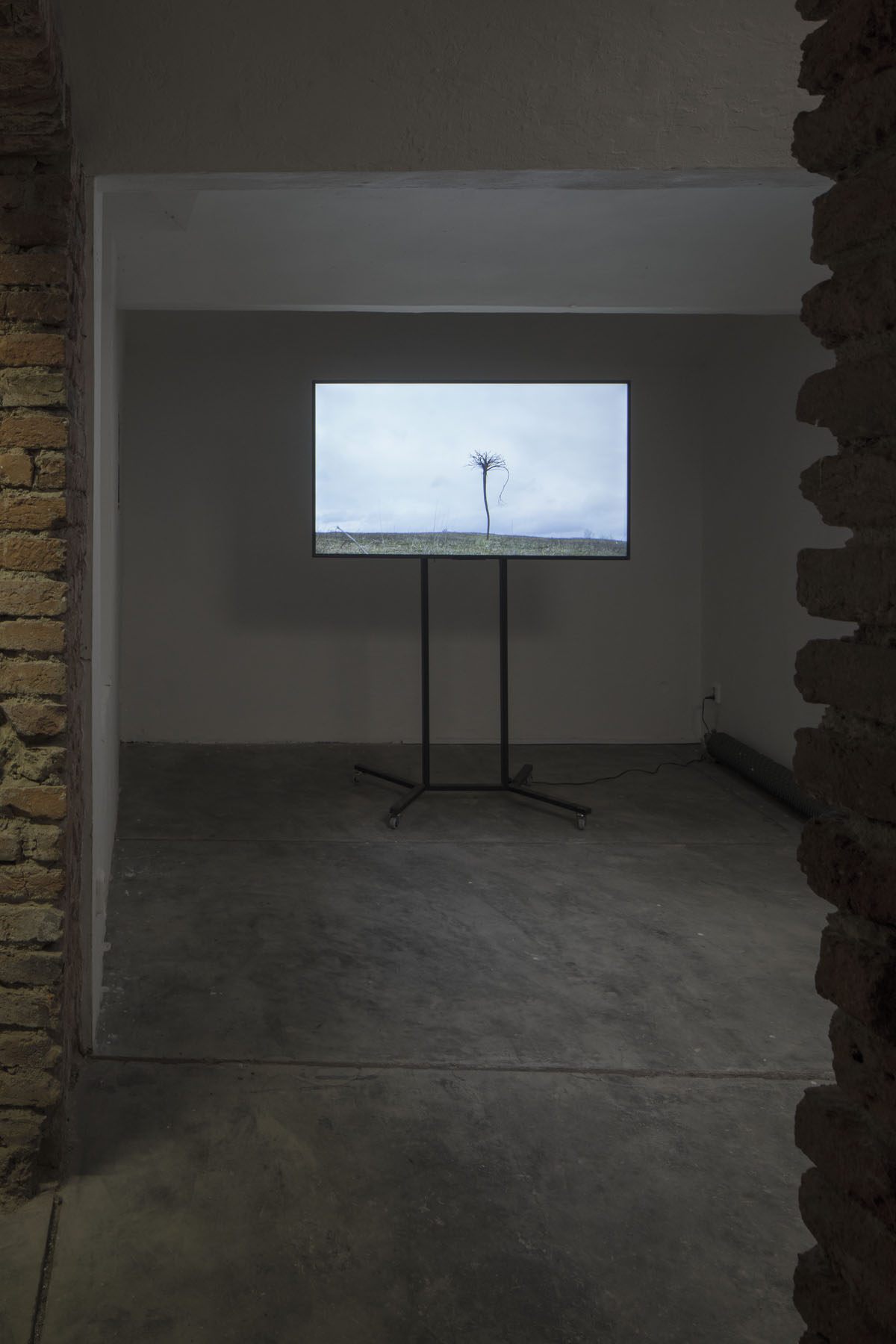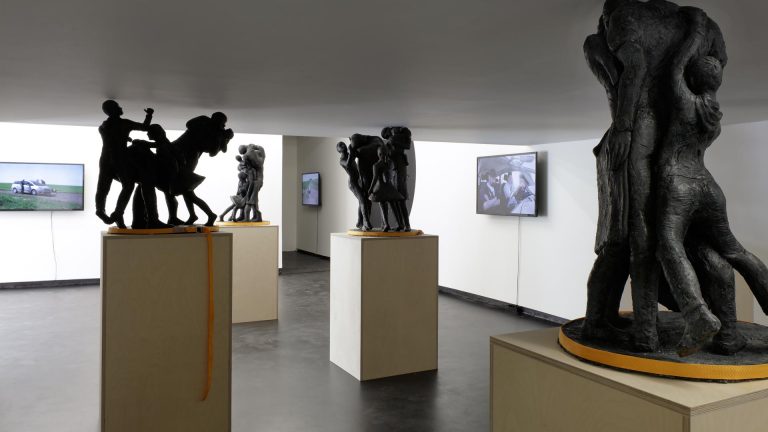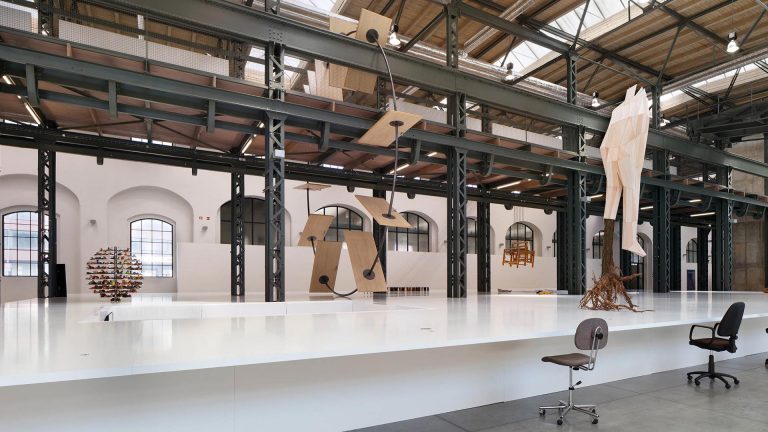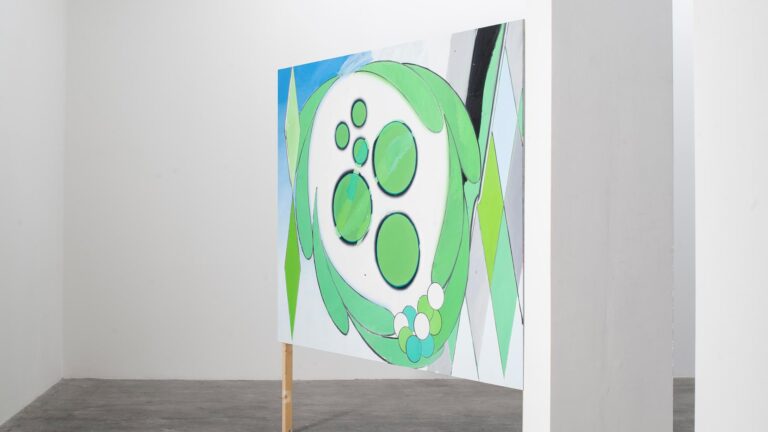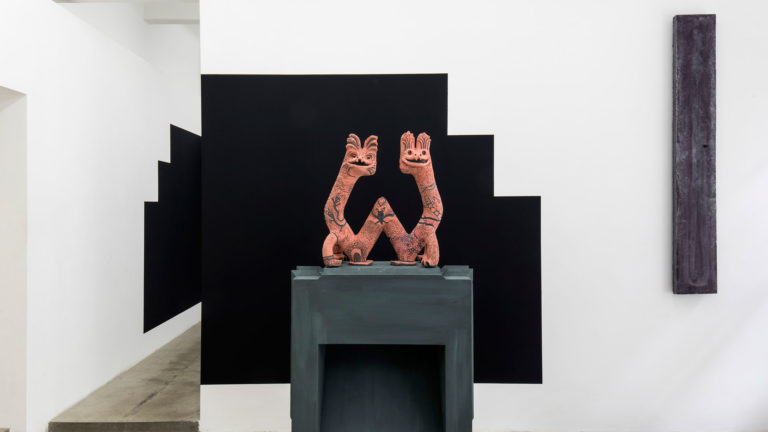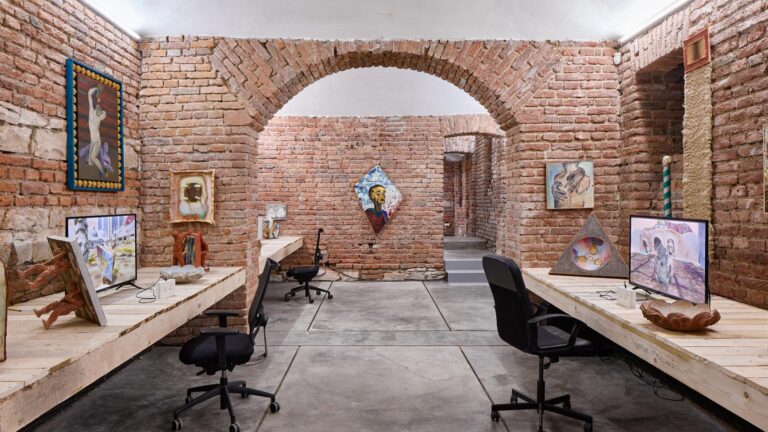Artists: Daniela Baráčková and Tereza Severová
Exhibition title: Just Another Place
Curated by: Jen Kratochvil
Venue: Futura, Prague, The Czech Republic
Date: February 25 – May 31, 2020
Photography: all images copyright and courtesy of the artists and Futura, Prague
Nietzsche never fully recovered from aftereffects of the injuries caused by his fall off the horse during his service in the Prussian Army in his early twenties. In 1879 his condition started to deteriorate rapidly, which led him to decision to leave the post of philology professor at The University of Basel. In an effort to escape the pressure of the idea of a personal failure, he started to travel Europe. He spent the cold winter seasons at the Mediterranean Sea and the summers back in the Swiss Alps or at his mother‘s home near Leipzig. His eyesight was gradually deteriorating to such an extent that he wasn’t able to stay focused while writing and the white space of paper began to more and more resemble a never ending hollow crevice into which he was succumbing in free fall. At that time, even before the creation of Thus Spoke Zarathustra, The Gay Science or On the Genealogy of Morality, he was entertaining the idea that he wouldn’t be able to write anything new ever again. Literally at the end of his strength he learned about a new invention. Following centuries of half-hearted attempts (the first experiments date back to 16th century), the first industrially produced and commercially distributed typewriter arose. So-called Malling-Hansen Writing Ball allowed insertion of only one single sheet of paper which the machine operator had no way of looking at throughout writing, as it was covered by a bulky globular appliance equipped with a keyboard. The whole device resembled more a bizarre sculptural experiment or even a jewel, in spite of that, it was possible for an exceptionally proficient writer to reach the typing speed of 800 characters per minute (just for the comparison’s sake it’s good to add that the speed of typing on today’s keyboards is 190 – 200 characters per minute. Thanks to the invention of typewriter Nietzsche got back to his work in full force, he didn’t have to strain his eyesight, wrote with his eyes shut and created for himself a new direct flowline between his mind and the written word, mediated solely by the tips of his fingers gently tapping on the system of keys. The critics’ reaction was ecstatic; Nietzsche is back and more energetic than ever before. Only the closest Nietzsche’s friends and observant readers noticed other unexpected changes. Nietzsche’s expression style changed dramatically. He became much more belligerent, brisker, in the words of writer and composer Heinrich Köselitz literally telegraphic.
On 7 March 2020 Google Maps will celebrate its fifteenth anniversary since it was first publically launched. It seems incredible how long and yet in the total automatisation of its use ridiculously short this period of 15 years has been. The fifteen years of a tool that we nowadays use not only to navigate in space, but also to get information about the opening hours of the shops in the neighborhood, depending on our taste we find out about the programs of galleries or sport events. It’s a tool which still with a relatively non-invasive approach towards ads defines our daily wait for public transport, allows us to get around traffic jams on highways as well as shows us through Street View far away longed-for places in the intimacy close to the possibility of touch. We didn’t even have Smartphones fifteen years ago and the idea of a self-sufficient app in a web browser interface was absolutely revolutionary.
Even though we are still far away from the exact understanding of how a human brain works, it is clear that technology radically and to some extent unknowingly changes our in an endless march of the biological evolution established and attested patterns of perception and acceptance of information. To say that a Smartphone is an extension of human hand and that we are becoming cyborgs is now a trivial and outdated statement. What, on the other hand, it means and what it’s going to mean on the short-term platform of our own lives remains unclear.
The touch of soil, sound of wind, contact of our feet with grass or stones in an unnamed natural environment is for an urbanized men going through the technological transformation of their mind and body like a sound of a distant dream which outlines are slowly fading. Regardless if you come in contact with nature on daily basis or only sporadically during holiday trips, in case you don’t live under aluminum insulated roof in one of the last remaining places on the planet away from the internet coverage and your laptop isn’t stored in insulation chamber, then you are willy-nilly influenced by the technological transformation.
Just Another Place doesn’t comment on the relationship between humans and technology, it doesn’t use the term cyborg, nor does it try to critically review the Anthropocene epoch. On the contrary, it exhibits the multilayered reality of unconscious influences and their possible effects on the platform of references taken out of time and space by subtle touches of sounds and images resonating throughout the contemporary notion of dichotomy of the natural and cultural, or more precisely – the cultivated. At first glance everything seems to be legible and substituting, yet the simplicity of the gesture brings back memories and evokes a subconscious feeling of lost sense of belonging placed somewhere deep in our genetic code. The current acceleration, within which scope fifteen years seems like eternity, falls apart and the sound of flute or uncovering of the surface of soil with a digging spade suddenly gets back its time exceeding the meaning. A place close and far, the localization of home, localization of an exotic land, localization of a person as a dynamic point on the map. All of that is just another indeterminate space, despite being pinpointed in the maze of neurons and their connections, and even though it might be clouded for many, it remains clearly defined.
-Jen Kratochvil



